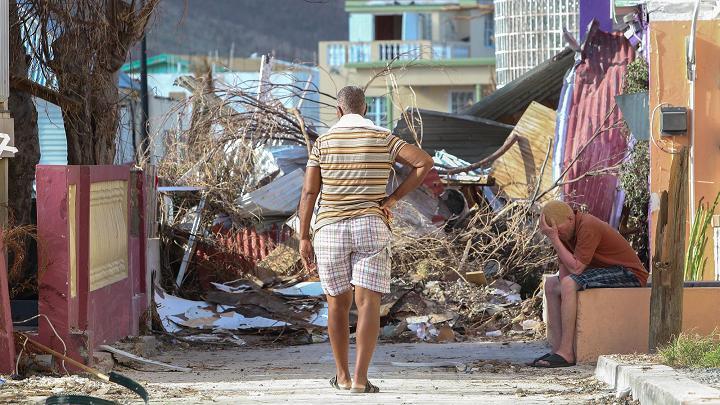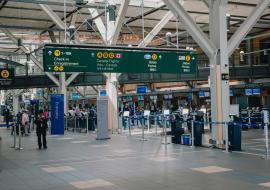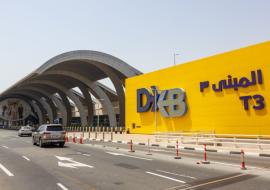The 2017 Hurricanes Cost the Caribbean $741 Million in Visitor Spending

In response to the impact of the 2017 hurricane season on the Caribbean’s Travel & Tourism sector, the World Travel & Tourism Council (WTTC) has launched a report on Resilience and Recovery assessing the immediate and long-term effect across the region.
Analysis from Tourism Economics, an Oxford Economics subsidiary, found that Travel & Tourism is one of the most important economic sectors in the Caribbean, contributing 15.2 percent of the Caribbean’s GDP and 13.8 percent of employment. However, in around half of the countries analyzed, the sector accounts for over 25 percent of GDP – more than double the world average of 10.4 percent.
The 46.7 million international visitors who visited the region in 2016 spent US$31.4 billion, which supported 2.4 million jobs. The 2017 hurricane season resulted in an estimated loss of 826,100 visitors to the Caribbean, compared to pre-hurricane forecasts.
These visitors would have generated US$741 million and supported 11,005 jobs. Research suggests that recovery to previous levels could take up to four years, resulting in an approximate loss of US$3 billion.
Quantifying the impact on Travel & Tourism post-crisis provides a level of understanding of the enormous economic contribution that the sector brings to the region and the impetus for recovery.
Natural disasters will continue to hit the Caribbean, perhaps on an increasingly frequent basis as a result of climate change. As the economies of islands grow ever more reliant on the sector, it is critical that governments and destination management organizations develop strategies to minimize the long-term impact of natural disasters and encourage visitor spending to return to pre-hurricane levels of growth.
Gloria Guevara Manzo, President and CEO WTTC, commented: “Crisis preparedness and response is one of WTTC’s strategic priorities. We are delighted to present this research which helps the tourism industry, both public and private sectors, in the Caribbean quantify the potential impact of the devastating hurricanes last year and put in place partnerships and policies to help bring the region, and those islands most negatively affected, back on track.
Timeframes for recovery can be significantly reduced when governments work alongside the private sector to implement policy initiatives that are supportive for Travel & Tourism growth and long-term resilience. WTTC strongly encourages these conversations and together with our Members, we are working hard to support local communities as they rebuild and recover and ensure resilience against future crises."
Frank J. Comito, CEO and Director General, Caribbean Hotel and Tourism Association, commented: “In the autumn of 2017 the world watched on in shock at the media images of the strongest Atlantic hurricanes ever observed battering the islands of the Caribbean, one of the most tourism-dependent regions in the world. The need to demonstrate unity and leadership is especially critical in times of crisis. Actions need to be taken quickly in order to ensure a rapid recovery to those affected by natural disasters and to restore public confidence in Travel & Tourism.”
Joy Jibrilu, Chairperson, Chairman, Board of Directors, Caribbean Tourism Organization and Director General, Bahamas Ministry of Tourism, commented: “The events of last fall were tragic for so many across our Caribbean region, and our thoughts are still very much with the countries, businesses and families that are rebuilding their lives now. The best, most effective way to support this endeavor is for all of us to work together. This partnership must bring together public and private entities in our countries and region, and we must also be mindful that the progress of one country will tend to benefit our marketplace position as a region.”
Travel & Tourism private sector supports move by Argentina to put travel facilitation and security at heart of G20 agenda
WTTC also issued its support for the outcomes of the meeting of G20 tourism meeting in Buenos Aires, Argentina, which include recognition that the use of technology, such as biometrics, for travel facilitation and security was vital to sustain the growing numbers of travelers and could result in the number of jobs created by tourism to increase by more than 7 million over the next ten years.
The T20 meeting of tourism ministers of the G20 countries was hosted by Argentina in Buenos Aires around the theme of ‘Future of Work – sustainable tourism as a driver of employment’.
Speaking at the meeting, Gloria Guevara Manzo said, “Given its impressive growth forecasts and high levels of job generation, Travel & Tourism is a sector which will play an increasing role in inclusive and sustainable development. As the private sector, we want to maximize job creation, and are working hard to ensure we have the right engagement, training and career development programs in place.
However, we are concerned that the combination of infrastructure capacity constraints and more stringent security requirements for travelers will result in huge inefficiencies across the system and impact tourism growth and job creation in the future.”
Research shows that current and future capacity constraints could mean that between 8 and 21 percent of forecast growth in air travel cannot be supported. According to WTTC data, if this situation is addressed between 7 and 19 million jobs can be created.
Across G20 countries Travel & Tourism contributes US$6.3 trillion to GDP, 9.1 percent of GDP and generates 208 million jobs, 1 in 11 of all jobs. The G20 countries form some of the largest inbound and outbound tourism economies, and altogether account for 76 percent of the world’s Travel & Tourism GDP.














